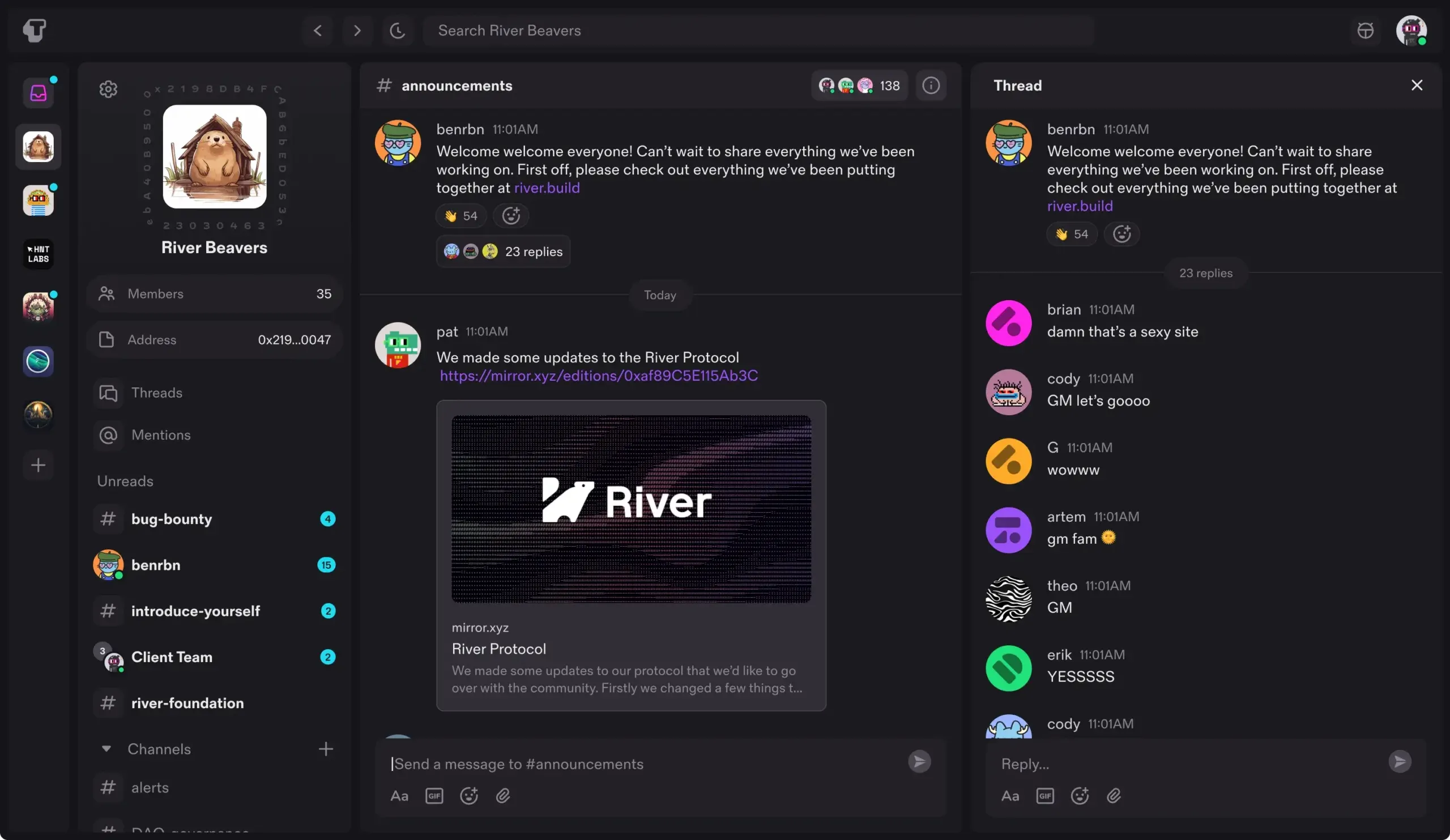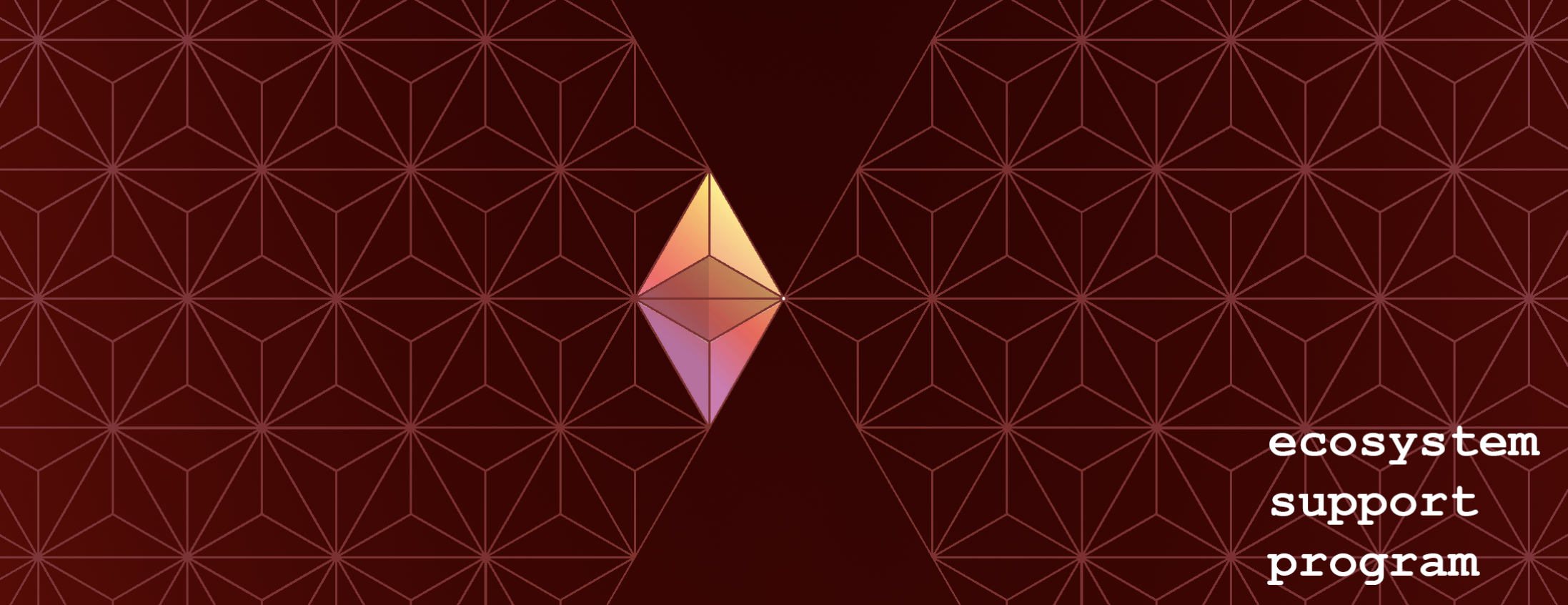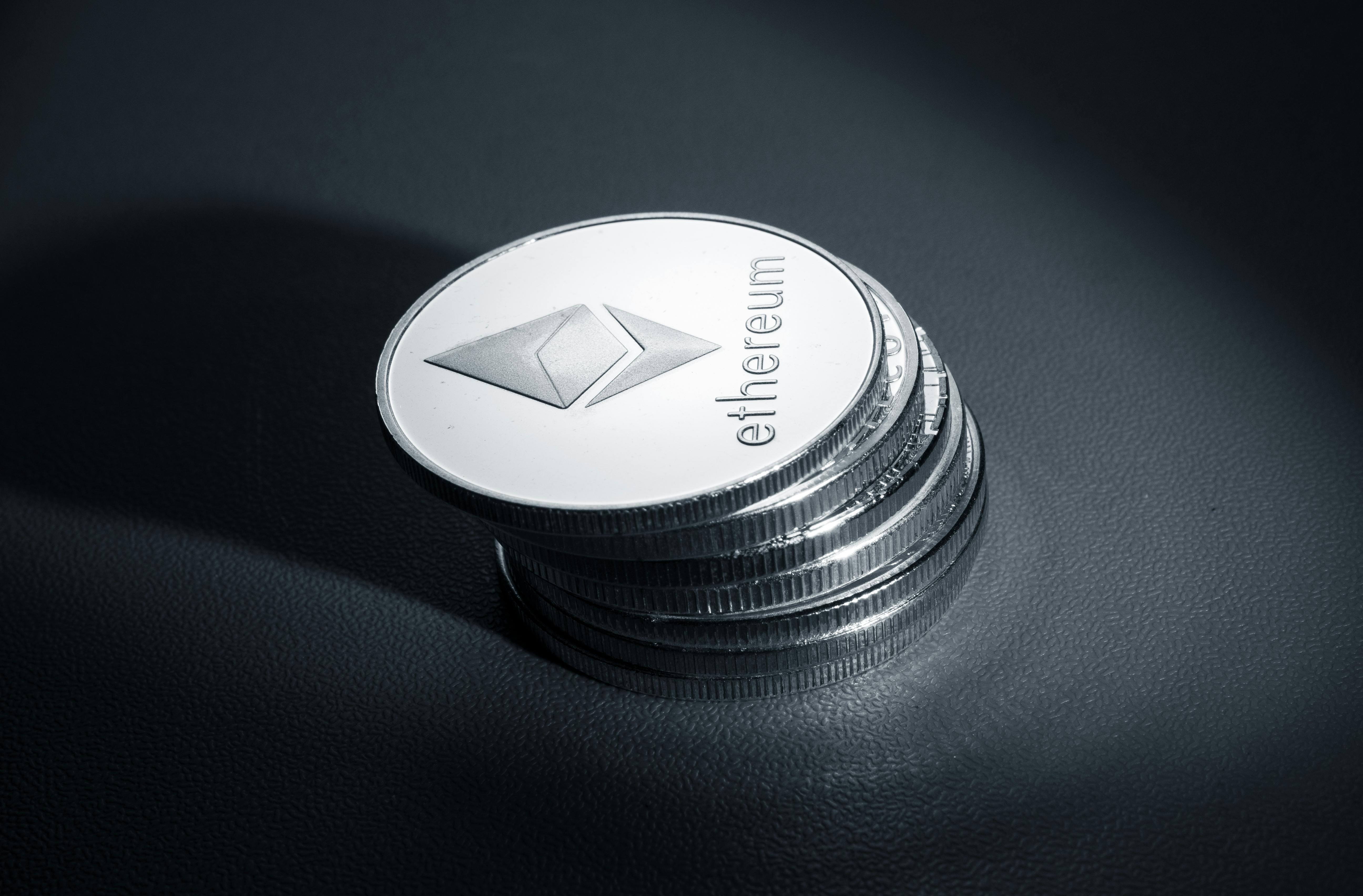
With tech giants like Google and Meta pumping potentially unwanted AI features into messaging platforms, there is a growing need for decentralized, encrypted alternatives that don’t rely on centralized heavyweights.
One of the companies aiming to provide this service is Here Not There Labs, creator of the Towns social app and the newly launched River Protocol. River is based on blockchain technology and aims to provide an alternative to chat platforms like Slack and Discord with customizable and private features for creators.
“There are a lot of decentralized social media products, but not a lot of social media protocols,” said Ben Rubin, co-founder and CEO of Here Not There Labs. decryption. “We are not aware that social media (apps) owned and operated by network participants have a means of establishing trust with each other in a permissionless manner.”
Founded in 2023, river protocol It is designed to enable developers to build decentralized real-time messaging applications using Ethereum Virtual Machine (EVM)-compatible layer 2 blockchains, off-chain nodes, and smart contracts based on the Ethereum scaling network.

According to the River Protocol website, the project is governed by the River Association, a decentralized autonomous organization DAO that allows RVR token holders to participate in the future of the protocol.
River Protocol joins a growing number of decentralized applications providing secure communications and social media, including Farcaster, BlueSky, Nostr, and Blockscan Chat. However, while many social media protocols are targeting Twitter, River Protocol is more focused on teams, companies, and projects that require their own dedicated servers.
“Each group is represented by a space, and each space is its own smart contract deployed on-chain,” Rubin said. “What smart contracts do is allow groups to issue memberships to spaces, programming entitlements for who can read and write and under what conditions.”
According to Rubin, this type of setup is best suited for large groups where members are assigned specific roles, such as moderators, or for large groups where you need to set up limited access to the group’s channels.
River stores content off-chain and uses on-chain rollups. A custom app chain handles messaging at a speed that delivers a similar experience to Telegram or WhatsApp. Rubin added that this separation ensures strong security for permissions while optimizing messaging to be fast and user-friendly while maintaining user control and decentralization.
“While our primary deployments are on-chain, we can read from the (Ethereum) mainnet, Polygon, or other chains to compose rules together,” added Brian Meeks, co-founder and CTO of Here Not There Labs. “All of this creates a trusted path for messaging that occurs in the River protocol. However, we can cryptographically verify that what is in the river protocol is acceptable on-chain.”
Meeks added that in addition to messaging apps, other potential user cases for River Protocol include connecting decentralized video game players.
“Everything benefits from communication,” he said. “Their protocols can be configured together into a game, app, or other decentralized experience to bring about a real-time, verifiable, end-to-end encrypted communication experience.”
Additional reporters: sander lutz.
Editor: Andrew Hayward
daily report newsletter
Start your day today with top news stories, original features, podcasts, videos and more.



